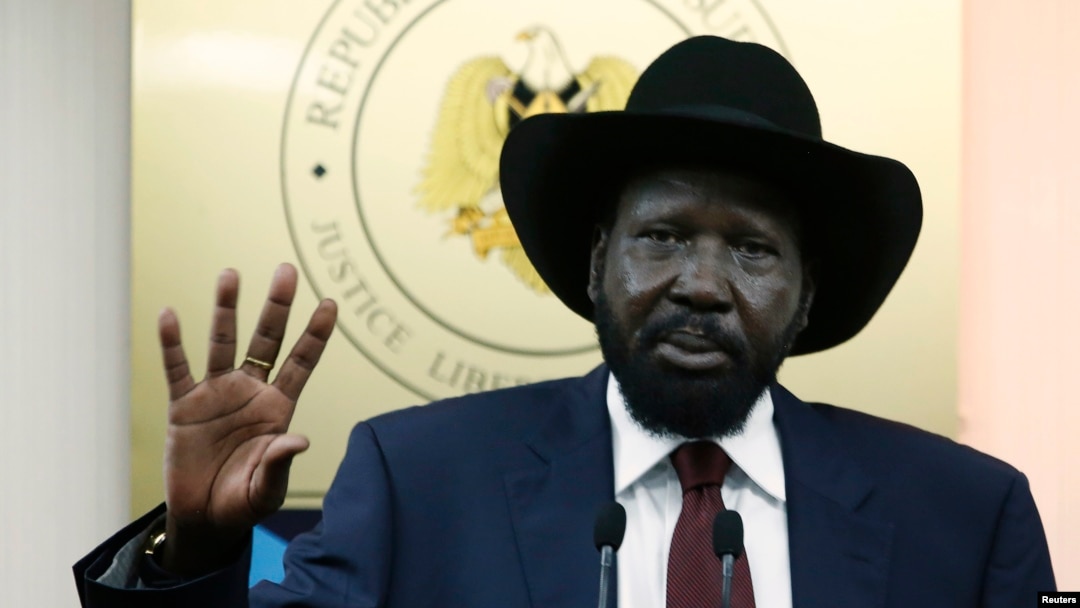South Sudan parties to the post-war peace agreement announced Thursday an agreement to extend the transitional period of the government by two years, a decision that western governments said lacked legitimacy.
Martin Elia Lomuro, South Sudan Minister of Cabinet Affairs, said the move was aimed at addressing challenges that impede implementation of the agreement.
“I am informing the people of South Sudan that the political parties who signed the revitalized agreement to resolve the conflict in the Republic of South Sudan have unanimously agreed to a 24-month extension of the interim period,” announced President Salva Kiir in Juba.
First Vice President Riek Machar called the move a way to avoid “the crash of the nation” in February 2023, when elections were supposed to be held.
The 24-month extension begins in February 2023 and ends in February 2025.
According to the new timeline, elections are planned for December 2024.
Machar said the parties found that about 70 percent of the deal has not been implemented.
President Kiir’s former chief rival called on the SPLM In Government party to provide the political space and will for effective implementation of the peace agreement, adding the environment for implementing the deal has not been fair.
“We would want to see our national security loved by all, we would like to see our police to be the protector of all," Machar said, adding "We would like to see these organs supporting [and] serving our country but without direction, things will continue.”
The peace deal’s implementation has remained far behind schedule with key tasks including security reforms not completed.
Unless the parties redouble their efforts and respect the timelines in the deal, no change will happen in the country, said Edmond Yakani, an activist who spoke at the event on behalf of civil society groups.
“Peace is the product of political discipline. We have seen in all the political establishments in this country, within their parties and within the function of the government, we have seen political indiscipline that has brought us here; that is the reality,” said Yakani.
The “Troika” countries - the U.S., United Kingdom and Norway – which supported the process and implementation of the peace agreement since 2018, boycotted the event.
Cameron Hudson, Senior Associate of the Africa Program at the Center for Strategic and International Studies, told South Sudan in Focus the relationship between South Sudan and the West is deteriorating.
“We have to look at this in the context of the overall relationship. It has been on a downward trajectory for many months, frankly." Hudson said.
Hudson said recent statements from the U.S. Congress saying the U.S. would not continue to fund efforts that the parties themselves “are simply not interested in pursuing” puts the situation in South Sudan into its proper perspective.
“I do think that we need to acknowledge that the peace agreement is not working, not because it's a flawed agreement, but because we have flawed parties to the agreement.” Hudson told VOA.
All representatives of the parties to the revitalized peace agreement signed their initials to a document indicating their collective decision to extend the transitional period and called for support from the region and the international community.


